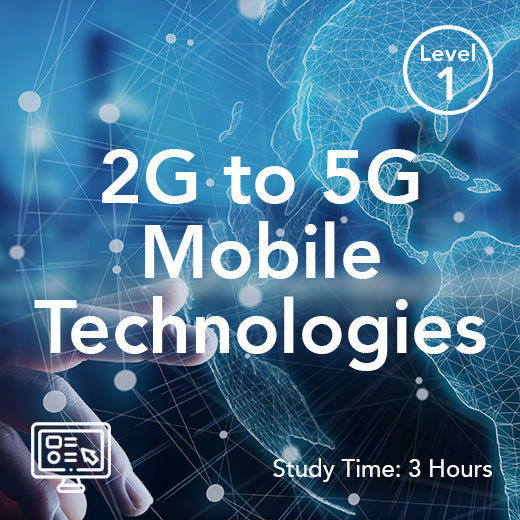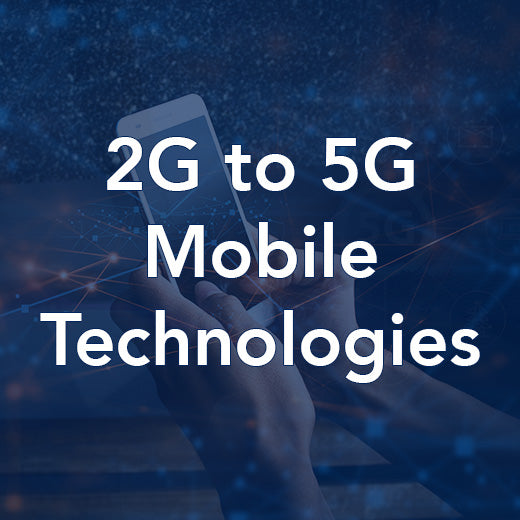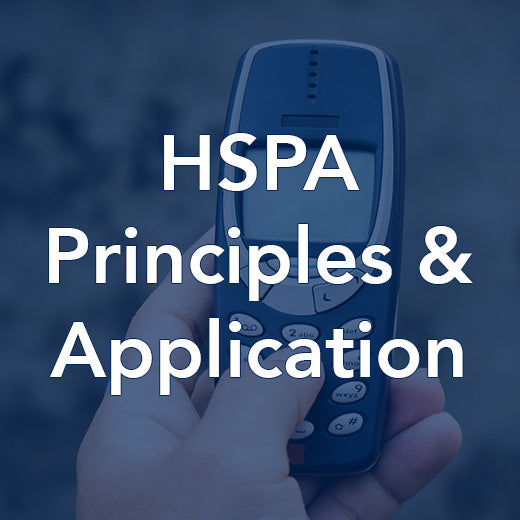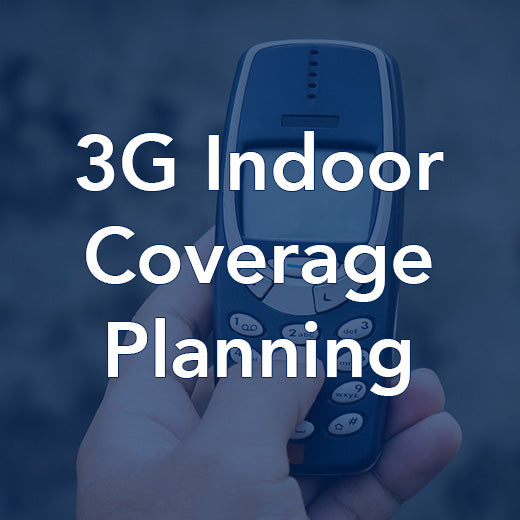HSPA, or High Speed Packet Access, is a technology that allows for faster data transmission over mobile networks. As the demand for high-speed mobile data continues to grow, understanding and mastering HSPA technology is essential for professionals in the telecommunications industry.
Wray Castle Ltd offers a range of HSPA training courses designed to provide participants with the knowledge and skills needed to excel in this rapidly evolving field. Whether you are new to HSPA or looking to enhance your existing skills, our courses cater to learners of all levels.
Our HSPA training courses cover a wide range of topics, including HSPA architecture, protocols, performance optimization, troubleshooting, and more. Participants will learn how HSPA works, how to configure and optimize HSPA networks, and how to troubleshoot common issues that may arise.
At Wray Castle, we understand the importance of hands-on learning. That's why our HSPA training courses include practical exercises and real-world case studies to help participants apply their knowledge in a practical setting. Our experienced instructors provide expert guidance and support throughout the course, ensuring that participants have the skills and confidence to succeed in their careers.
By enrolling in our HSPA training courses, participants will gain a competitive edge in the telecommunications industry. Our courses are designed to be flexible and accessible, with options for live and self-paced learning. Participants can access course materials, virtual labs, webinars, and more through our user-friendly Wray Castle Hub platform.
Whether you are a telecommunications professional looking to advance your career or an organization seeking to upskill your team, Wray Castle Ltd has the HSPA training courses you need. Join us today and take the next step towards mastering HSPA technology.
HSPA Training Courses
-

2G to 5G Mobile Technologies (On-Demand)
Our 2G to 5G Mobile Technologies Training Course is designed to provide professionals in the telecommunications industry with the knowledge and skills needed to understand and work with the latest mobile technologies. With the rapid evolution of mobile networks, staying up-to-date with the latest advancements is crucial for professionals looking to advance their careers in this field. Our comprehensive course covers everything from the basics of 2G technology to the cutting-edge developments in 5G networks.By enrolling in our training course, participants will gain a deep understanding of the principles and technologies behind 2G, 3G, 4G, and 5G networks. They will learn about the key features and capabilities of each generation, as well as the challenges and opportunities presented by the transition to 5G. Our expert instructors will guide participants through hands-on exercises and real-world case studies to ensure they have the practical skills needed to succeed in this dynamic industry.Whether you are a seasoned professional looking to upgrade your skills or a newcomer to the telecommunications field, our 2G to 5G Mobile Technologies Training Course will provide you with the knowledge and expertise needed to excel in this fast-paced industry. Stay ahead of the curve and advance your career with our industry-leading training program. This self-paced on-demand distance learning course features illustrated course books, videos, tests and full tutor support. Who would benefit This course is suitable for engineering, technical sales, technical management and other staff who require a general technical overview of mobile technologies but who do not need to invest the time necessary to learn about each technology in depth. Prerequisites A basic understanding of telecoms principles would be beneficial. Topic Areas Include: An overview of basic radio and cellular techniques and technologies Network Generations from 2G to 5G 3GPP Release programme An overview of 2G (GSM) network architecture and functionality GSM TDMA air interface operating principles GPRS and EDGE upgrades to GSM GSM services TETRA networks An overview of 3G (UMTS) network architecture and functionality UMTS WCDMA air interface operating principles HSPA and HSPA+ upgrades to UMTS An overview of 4G (LTE) network architecture and functionality LTE OFDMA air interface operating principles Evolved Packet Core (EPC) operation Small cells and heterogeneous networks Self Organising Networks (SON) LTE voice options LTE Advanced and LTE Advanced Pro Wi-Fi/Cellular interworking LTE operation in unlicensed frequency bands Machine Type Communications (MTC) LTE for public safety Introduction to 5G 3GPP use cases for 5G Performance targets for 5G Radio Spectrum for 5G 5G OFDMA air interface 5G System Architecture Non Standalone (NSA) and Standalone (SA) New Radio (NR) 5G Core Network Functions
£750.00
-

2G to 5G Mobile Technologies
Our 2G to 5G Mobile Technologies Training Course is designed to provide professionals in the telecommunications industry with the knowledge and skills needed to understand and work with the latest mobile technologies. With the rapid evolution of mobile networks, staying up-to-date with the latest advancements is crucial for professionals looking to advance their careers in this field. Our comprehensive course covers everything from the basics of 2G technology to the cutting-edge developments in 5G networks.By enrolling in our training course, participants will gain a deep understanding of the principles and technologies behind 2G, 3G, 4G, and 5G networks. They will learn about the key features and capabilities of each generation, as well as the challenges and opportunities presented by the transition to 5G. Our expert instructors will guide participants through hands-on exercises and real-world case studies to ensure they have the practical skills needed to succeed in this dynamic industry.Whether you are a seasoned professional looking to upgrade your skills or a newcomer to the telecommunications field, our 2G to 5G Mobile Technologies Training Course will provide you with the knowledge and expertise needed to excel in this fast-paced industry. Stay ahead of the curve and advance your career with our industry-leading training program. Prerequisites A basic understanding of telecoms principles would be beneficial. Topic Areas Include: An overview of basic radio and cellular techniques and technologies Network Generations from 2G to 5G 3GPP Release programme An overview of 2G (GSM) network architecture and functionality GSM TDMA air interface operating principles GPRS and EDGE upgrades to GSM GSM services TETRA networks An overview of 3G (UMTS) network architecture and functionality UMTS WCDMA air interface operating principles HSPA and HSPA+ upgrades to UMTS An overview of 4G (LTE) network architecture and functionality LTE OFDMA air interface operating principles Evolved Packet Core (EPC) operation Small cells and heterogeneous networks Self Organising Networks (SON) LTE voice options LTE Advanced and LTE Advanced Pro Wi-Fi/Cellular interworking LTE operation in unlicensed frequency bands Machine Type Communications (MTC) LTE for public safety Introduction to 5G 3GPP use cases for 5G Performance targets for 5G Radio Spectrum for 5G 5G OFDMA air interface 5G System Architecture Non Standalone (NSA) and Standalone (SA) New Radio (NR) 5G Core Network Functions Trainer: Les Granfield Les is a technical trainer with 35 years of experience. His expertise extends across a wide range of telecommunications technologies. He specializes in GSM, GSM-R, ERTMS/ETCS, UMTS and LTE radio access networks, radio planning, radio access network optimization and Push to Talk over Cellular (PoC).
£1,815.00
-

HSPA Principles and Application
This one-day course provides a clear and logically organized explanation of both HSDPA and the E-DCH for both HSPA and the introduction to HSPA+ capabilities. In addition to the comprehensive training course on HSPA principles and applications, participants can expect to gain a deeper understanding of key topic areas such as HSDPA protocol structure, MAC architecture, HSDPA physical layer functions, device categories, and implementation. The course also covers HSUPA protocol structure, channels, physical layer functions, device categories, and the establishment of a HSUPA connection. Participants will also learn about cell change procedures, enhanced uplink protocols, soft handover, and the implications for network design and operation. This one-day course is designed for individuals who require a technical overview of HSDPA and HSUPA, and how these technologies impact network design and operation. Participants should have familiarity with the structure and operation of the UMTS air interface at Release 99 and Release 4, or have previously attended the UMTS Air Interface course (MB2002). By the end of the course, participants will have a clear and logically organized explanation of HSDPA, E-DCH, and an introduction to HSPA+ capabilities, equipping them with the knowledge and skills needed to excel in the field of wireless communication technologies. Who would benefit Those who require a technical overview of HSDPA and HSUPA and the implications for network design and operation. Prerequisites Familiarity with the structure and operation of the UMTS air interface at Release 99 and Release 4, or previous attendance on the UMTS Air Interface course (MB2002). Topic Areas Include Introduction to HSPA HSDPA protocol structure MAC architecture HSDPA channels HSDPA physical layer functions HSDPA device categories HSDPA implementation Cell change procedures Enhanced uplink protocols HSUPA protocol structure MAC architecture HSUPA channels HSUPA physical layer functions HSUPA device categories Establishment of a HSUPA connection Soft handover
POA: Private Course
-

3G Indoor Coverage Planning
Course Summary Enhance your skills in 3G indoor coverage planning with our comprehensive training course. Designed for experienced GSM indoor planners looking to transition into WCDMA coverage, this course covers various indoor scenarios and planning techniques to provide you with the knowledge and expertise needed in indoor UMTS coverage. Ideal for engineers moving into UMTS indoor coverage or those working in planning-related roles, this course delves into topics such as traffic dimensioning, propagation modeling, link budgets, antenna positioning, and more. With practical planning exercises included, you will gain hands-on experience to apply your learnings in real-world scenarios.Don't miss this opportunity to advance your career in indoor coverage planning. Who would benefit Experienced GSM indoor planning engineers moving into UMTS indoor coverage, as well as those working in planning-related areas or needing to understand UMTS planning considerations. Prerequisites Attendees should already have knowledge and experience of GSM indoor coverage planning. Previous attendance on the UMTS Air Interface course (MB2002) is advantageous. Topic Areas Include: Traffic dimensioning Office and corporate scenarios Shopping centres Packet-switched traffic Propagation modelling Measurements Link budgets Antenna positioning Tunnels Stadiums RF safety (ICNIRP) Picocells Repeaters Femtocells Distributed antennas Fibre distribution Integrating indoor cells Includes practical planning exercises.
POA: Private Course

















